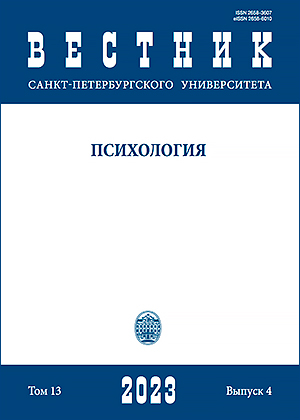The influence of confabulations about the reasons for the choice on the formation of false memories
DOI:
https://doi.org/10.21638/spbu16.2023.409Abstract
The article examines the causes of the choice blindness aftereffect on the formation of false memories. Several studies have shown that when individuals provide reasons for a choice they did not actually make, their memories shift towards the invented justifications (confabulations). The aim of this study is to contrast the explanation of the mnemonic aftereffect of choice blindness in terms of cognitive dissonance theory with explanations in terms of recency and verbalization effects. In the experiment, we compared two situations: one where participants justified evaluations contradicting their initial opinions, and another where they justified evaluations but attributed them to their partners’ opinions. It was hypothesized that if self-justification induces cognitive dissonance, participants who confabulated reasons for choices believed to be their own would exhibit more false memories regarding the original choice compared to those who believed they justified their partner’s opinion. The first stage involved participants evaluating the IQ of women based on their photos. In the second stage they had to explain the reasons for the evaluations (either considering it their own choice or partner’s). Half of the evaluations submitted for explanations contradicted the previously issued ones (low evaluations changed to high ones and vice versa). In the third stage, the participants had to remember the original evaluation. A change in the pole of perceived IQ judgments was measured. The results confirmed the presence of the choice blindness effect. The effect of false memories was found only in the group that considered the presented evaluations to be their own opinions.
Keywords:
choice blindness, confabulations, misinformation, false memories, cognitive dissonance, recency effect, verbalization
Downloads
References
References
Downloads
Published
How to Cite
Issue
Section
License
Articles of "Vestnik of Saint Petersburg University. Psychology" are open access distributed under the terms of the License Agreement with Saint Petersburg State University, which permits to the authors unrestricted distribution and self-archiving free of charge.




